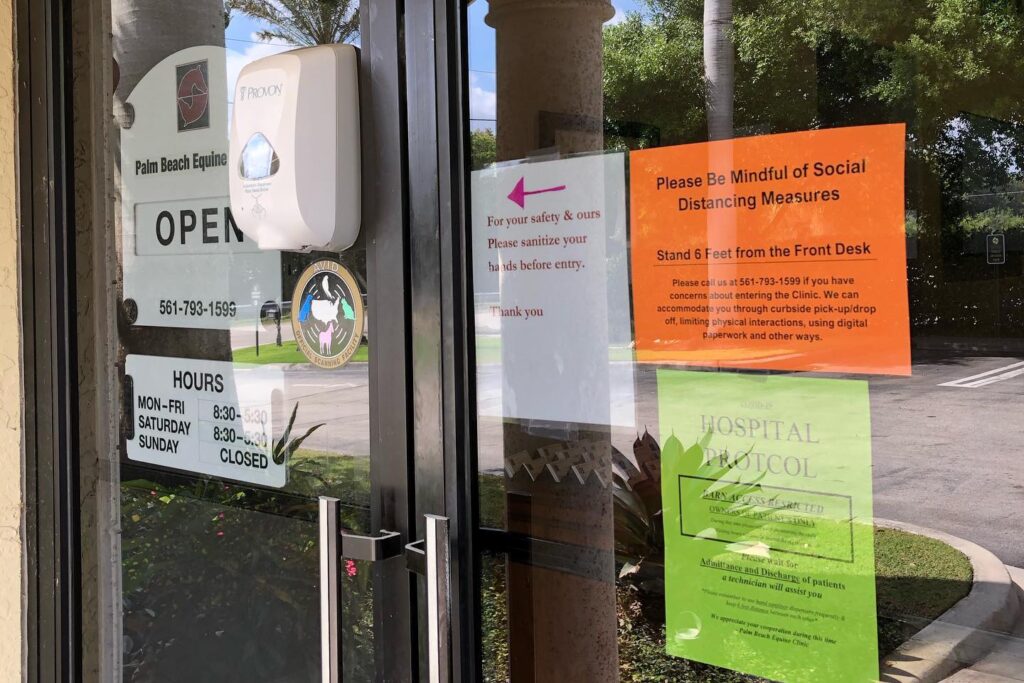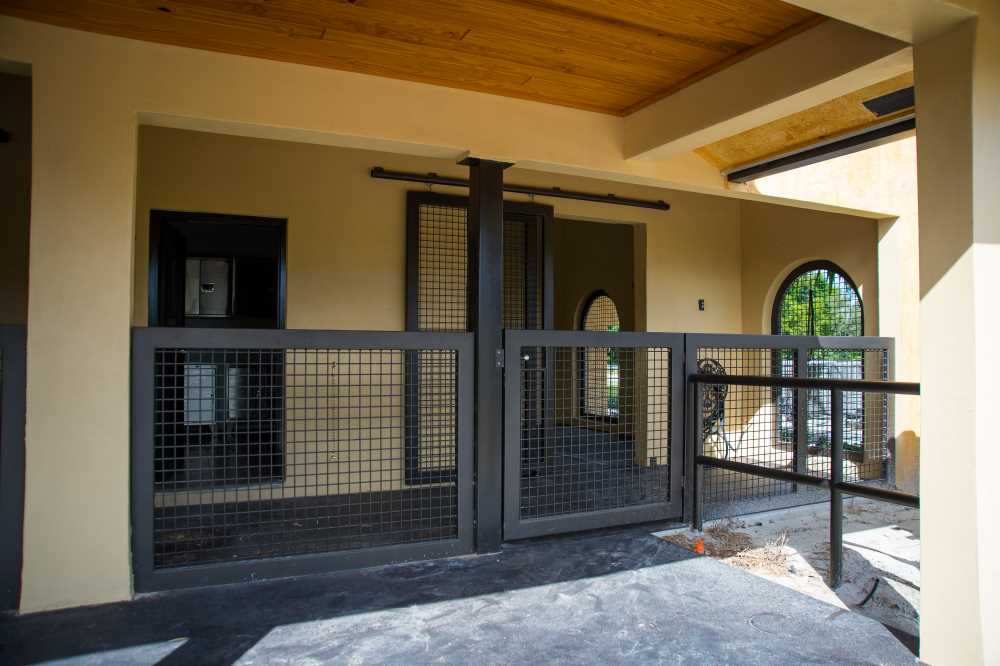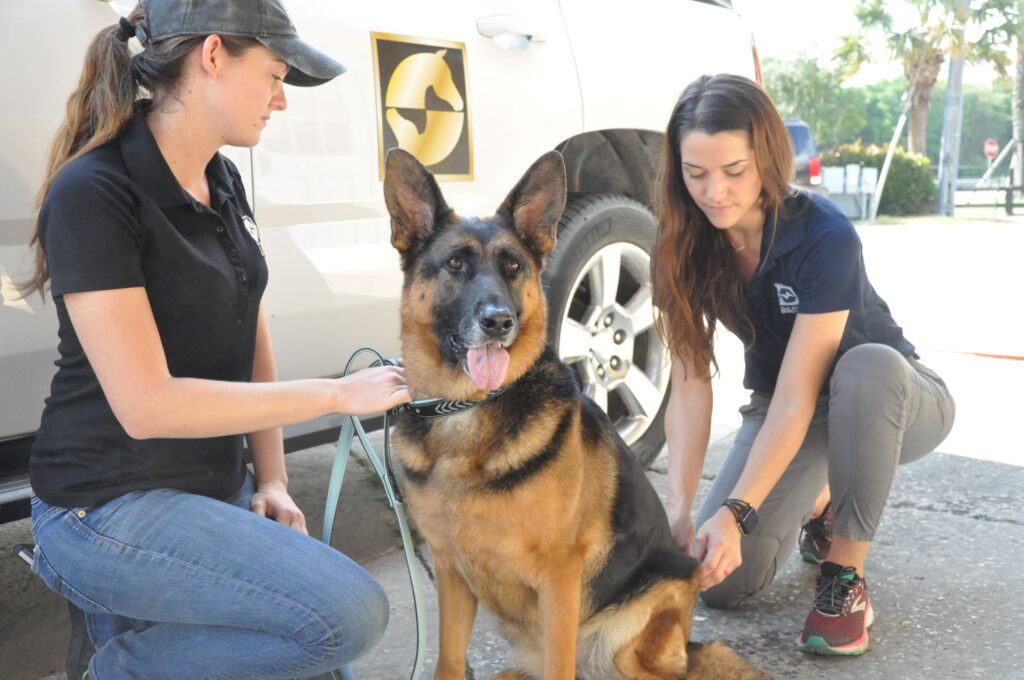Tag: diseases
Updated April 24, 2020
In an executive order issued March 20, 2020, Florida Governor Ron DeSantis has directed all non-essential businesses in Palm Beach County to close. As a veterinary hospital, Palm Beach Equine Clinic is an essential business and will remain open.
Palm Beach Equine Clinic is committed to the care of equine patients and will continue providing care. Our equine hospital, laboratory, and diagnostic departments are fully functioning, expertly staffed, and equipped to treat any type of equine health condition. A Palm Beach Equine Clinic veterinarian is always available in the event of an emergency, 24 hours a day, seven days a week.
While our doors remain open to support clients through this distressing time, Palm Beach Equine Clinic is taking precautions to prevent the spread of COVID-19.

We greatly appreciate the cooperation and encourage those with concerns to call ahead so our team can safely accommodate you and your animals. Preventative measures such as curbside pickup/dropoff, digital paperwork, limited physical interactions, and other safety protocols are being implemented.
Palm Beach Equine Clinic Coronavirus Safety Protocols
- We ask that all visitors wear a protective mask/covering. Anyone on the property, whether in the lobby or hospital, must wear a mask to protect themselves and our staff.
- Hand sanitizers have been posted to our main doors and we encourage all clients to take a pump before entering the clinic.
- Hospital visiting hours have been limited to 8 a.m. to 5 p.m. Please speak with your PBEC veterinarian or call 561-793-1599 for any questions or clarification regarding visiting your horse at the hospital.
- Hospital access is restricted to owners of intensive care patients only.
- Owners are only permitted in the hospital for patient pick up and drop off. Please wait for patient admittance and discharge so a technician can safely assist you.
- As standard medical practice, Palm Beach Equine Clinic continues to implement high-level disinfection and sterilization of medical equipment and devices. To ensure our staff and clients are kept safe, stricter cleaning protocols have been implemented throughout the Clinic and will remain in place for the foreseeable future.
- Please limit the number of individuals present during your horse’s appointment. Our veterinarians are equipped with skilled technicians to handle your horse.
- Please be cognizant of social distancing measures even if you have no signs of illness. Please practice social distancing while at the clinic by keeping at least 6 feet apart from others. We have posted signs, laid down boundary lines from our front desk, and our staff is doing their part to physically separate from clients as best as possible.
- If you or a family member are not feeling well, suspect you have been exposed to COVID-19, or have recently traveled to areas with active COVID-19 transmission, please call the front desk at 561-793-1599 to reschedule your horse’s appointment or arrange for another person to be present at the appointment.
- We encourage horse owners and barn managers to be prepared in the event that they or their staff becomes ill and cannot care for their horse. Having a dependable backup caretaker for your horse and organizing clear instructions on feed, medications, exercise and general care is crucial to preparedness planning.
Palm Beach Equine Clinic continues to stay up to date on COVID-19 developments and will update our clients, partners and fellow equestrians as the situation progresses. Contact Palm Beach Equine Clinic at 561-793-1599 for questions or to speak with a veterinarian.
Additional Coronavirus Resources & News for Veterinary Clients
A View 6-Feet from the Track
Dr. David Priest comments on veterinary life amid COVID-19 and specifically on its impacts in…
Care for Our Horses and Equestrians Amid COVID-19
The following information was requested by the Village of Wellington and posted at https://www.wellingtonfl.gov/767/Equestrian-Information By…
Coronavirus & Veterinary Medicine on Horse Radio Network
Dr. Scott Swerdlin talks COVID-19, equine veterinary medicine, and horse industry impacts with The Horse…
Hunkering Down? We’re Here for You & Your Pets
No matter what life may bring, our pets are here for us. And Palm Beach…
To Address Raised Concerns
The spread of the novel coronavirus has raised serious concerns as the status of the virus continues to evolve. As equine veterinarians, Palm Beach Equine Clinic is here to clarify questions raised regarding the potential impact of this disease in the equine industry.
Coronaviruses include a large group of RNA viruses that cause respiratory and enteric symptoms and have been reported in domestic and wild animals. Equine Enteric Coronavirus and COVID-19 are both coronaviruses, however, they are distinctly different viruses.
The Center for Disease Control and Prevention (CDC), infectious disease experts, and multiple international and national human and animal health organizations have stated that at this time there is NO EVIDENCE to indicate that horses could contract COVID-19 or that horses would be able to spread the disease to other animals or humans. Equine enteric coronavirus and COVID-19 are NOT the same strains and there is no indication that either are transmissible between species.
Therefore, it is important to concentrate on the health of our equestrians by being precautious and following recommendations from public health officials. Palm Beach Equine Clinic will continue to make every effort to stay informed of developments with COVID-19, and will continue to provide veterinary care to all horses regardless of the status of this disease.
A Profile of Equine Enteric Coronavirus
Equine coronavirus is an enteric, or gastrointestinal, disease in the horse. There is NO EVIDENCE that equine enteric coronavirus poses a threat to humans or other species of animals.
- Transmission: Equine coronavirus is transmitted between horses when manure from an infected horse is ingested by another horse (fecal-oral transmission), or if a horse makes oral contact with items or surfaces that have been contaminated with infected manure.
- Common Clinical Signs: Typically mild signs that may include anorexia, lethargy, fever, colic or diarrhea.
- Diagnosis: Veterinarians diagnose equine enteric coronavirus by testing fecal samples, and the frequency of this disease is low.
- Treatment and Prevention: If diagnosed, treatment is supportive care, such as fluid therapy and anti-inflammatories, and establishing good biosecurity precautions of quarantining the infected horse. Keeping facilities as clean as possible by properly disposing of manure will help decrease the chances of horses contracting the virus.

Information for this notice was compiled using the following sources:
Cornell Animal Health Diagnostic Center: https://www.vet.cornell.edu/animal-health-diagnostic-center/veterinary-support/disease-information/equine-enteric-coronavirus
American Association of Equine Practitioners, Equine Disease Communication Center: https://aaep.org/sites/default/files/Documents/Outside%20Linked%20Documents/DiseaseFactsheet_Coronavirus.pdf



